
Booker Taliaferro Washington was an American educator, author, and orator. Between 1890 and 1915, Washington was the primary leader in the African-American community and of the contemporary Black elite.
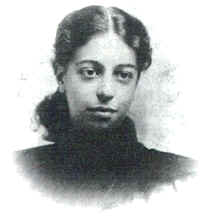
Angelina Weld Grimké was an African-American journalist, teacher, playwright, and poet.
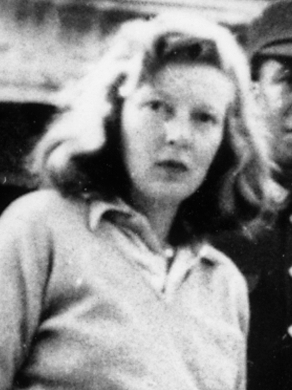
Martha Ellis Gellhorn was an American novelist, travel writer, and journalist who is considered one of the great war correspondents of the 20th century. She reported on virtually every major world conflict that took place during her 60-year career.

Margot Susanna Adler was an American author, journalist, and lecturer. She worked as a correspondent for National Public Radio for 35 years, became bureau chief of the New York office, and could be heard frequently on nationally syndicated All Things Considered and Morning Edition on National Public Radio (NPR). A Wiccan high priestess, Adler wrote Drawing Down the Moon, a seminal work on neopaganism in America.

James "Scotty" Barrett Reston was an American journalist whose career spanned the mid-1930s to the early 1990s. He was associated for many years with The New York Times.
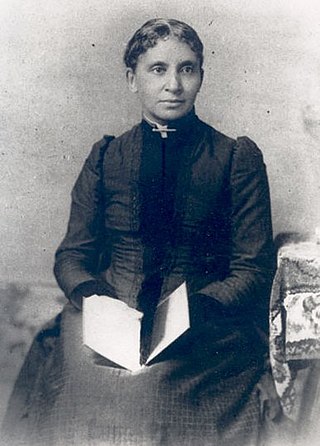
Charlotte Louise Bridges Grimké was an African-American anti-slavery activist, poet, and educator. She grew up in a prominent abolitionist family in Philadelphia. She taught school for years, including during the Civil War, to freedmen in South Carolina. Later in life, she married Francis James Grimké, a Presbyterian minister who led a major church in Washington, DC, for decades. He was a nephew of the abolitionist Grimké sisters and was active in civil rights.
African American literature is the body of literature produced in the United States by writers of African descent. Phillis Wheatley was an enslaved African woman who became the first African American to publish a book of poetry, which was published in 1773. Her collection, was titled Poems on Various Subjects, Religious and Moral. Olaudah Equiano was an African man who wrote The Interesting Narrative of the Life of Olaudah Equiano, an autobiography published in 1789 that became one of the first influential works about the transatlantic slave trade and the experiences of enslaved Africans. His work was published sixteen years after Phillis Wheatley's work.
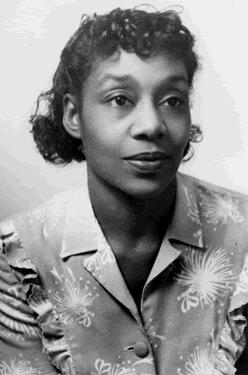
Dorothy West was an American novelist, short-story writer, and magazine editor associated with the Harlem Renaissance, a cultural movement in the 1920s and 1930s that celebrated black art, literature, and music. She was one of the few Black women writers to be published in major literary magazines in the 1930s and 1940s.

Ethel Lois Payne was an American journalist, editor, and foreign correspondent. Known as the "First Lady of the Black Press," she fulfilled many roles over her career, including columnist, commentator, lecturer, and freelance writer. She combined advocacy with journalism as she reported on the Civil Rights Movement during the 1950s and 1960s. Her perspective as an African American woman informed her work, and she became known for asking questions others dared not ask.
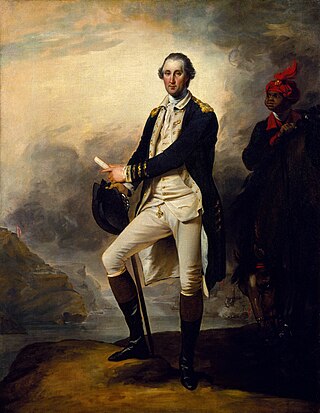
The history of George Washington and slavery reflects his changing attitude toward the ownership of human beings. The preeminent Founding Father of the United States and a hereditary slaveowner, Washington became uneasy with it, though kept the opinion in private communications only. Slavery was then a longstanding institution dating back over a century in Virginia where he lived; it was also longstanding in other American colonies and in world history. Washington's will immediately freed one of his slaves, and required his remaining 123 slaves to serve his wife and be freed no later than her death; they ultimately became free one year after his own death.
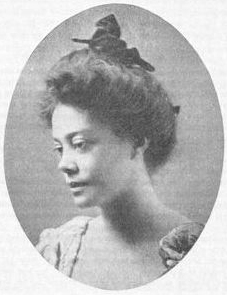
Alice Dunbar Nelson was an American poet, journalist, and political activist. Among the first generation of African Americans born free in the Southern United States after the end of the American Civil War, she was one of the prominent African Americans involved in the artistic flourishing of the Harlem Renaissance. Her first husband was the poet Paul Laurence Dunbar. After his death, she married physician Henry Arthur Callis and later was married to Robert J. Nelson, a poet and civil rights activist. She achieved prominence as a poet, author of short stories and dramas, newspaper columnist, women's rights activist, and editor of two anthologies.
Living in a wide range of circumstances and possessing the intersecting identity of both black and female, enslaved women of African descent had nuanced experiences of slavery. Historian Deborah Gray White explains that "the uniqueness of the African-American female's situation is that she stands at the crossroads of two of the most well-developed ideologies in America, that regarding women and that regarding the Negro." Beginning as early on in enslavement as the voyage on the Middle Passage, enslaved women received different treatment due to their gender. In regard to physical labor and hardship, enslaved women received similar treatment to their male counterparts, but they also frequently experienced sexual abuse at the hand of their enslavers who used stereotypes of black women's hypersexuality as justification.

Delilah Leontium Beasley, was an American historian and newspaper columnist for the Oakland Tribune in Oakland, California. Beasley was the first African American woman to be published regularly in a major metropolitan newspaper. Beasley was also first to present written proof of the existence of California's Black pioneers in Slavery in California (1918) and The Negro Trail-Blazers of California (1919). Her career in journalism spanned more than 50 years. She detailed the racism in California and the heroic achievements by Black people to overcome them during the late 19th century and early 20th century.
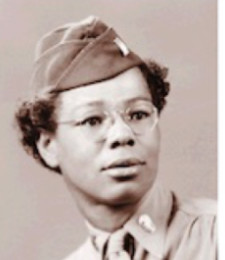
Martha Settle Putney was an American educator and historian who chronicled the roles of African Americans in the armed forces. After serving as one of the first black members of the Women's Army Corps during World War II, she devoted her life to researching and documenting the military service and achievements of black Americans.

Jill Lepore is an American historian and journalist. She is the David Woods Kemper '41 Professor of American History at Harvard University and a staff writer at The New Yorker, where she has contributed since 2005. She writes about American history, law, literature, and politics.

Victoria Earle Matthews was an American author, essayist, newspaperwoman, settlement worker, and activist. She was born into slavery in Fort Valley, Georgia, and moved to New York City with her family after emancipation. There, she briefly attended school and worked as a domestic servant to help her family.

The treatment of slaves in the United States sometimes included the denial of education, and punishments like whippings. Families were occasionally split up by the sale of one or more members, usually never to see or hear of each other again.

Nikole Sheri Hannah-Jones is an American investigative journalist known for her coverage of civil rights in the United States. She joined The New York Times as a staff writer in April 2015, was awarded a MacArthur Fellowship in 2017, and won the Pulitzer Prize for Commentary in 2020 for her work on The 1619 Project. Hannah-Jones is the inaugural Knight Chair in Race and Journalism at the Howard University School of Communications, where she also founded the Center for Journalism and Democracy.

Jessica B. Harris is an American culinary historian, college professor, cookbook author and journalist. She is professor emerita at Queens College, City University of New York, where she taught for 50 years, and is also the author of 15 books, including cookbooks, non-fiction food writing and memoir. She has twice won James Beard Foundation Awards, including for Lifetime Achievement in 2020, and her book High on the Hog was adapted in 2021 as a four-part Netflix series by the same name.
Daphne Valerius is a filmmaker born in Brooklyn, New York and raised in Rhode Island. She is best known for producing the 2007 documentary film The Souls of Black Girls. Valerius has also produced television work for ABC, FOX and BET.
















